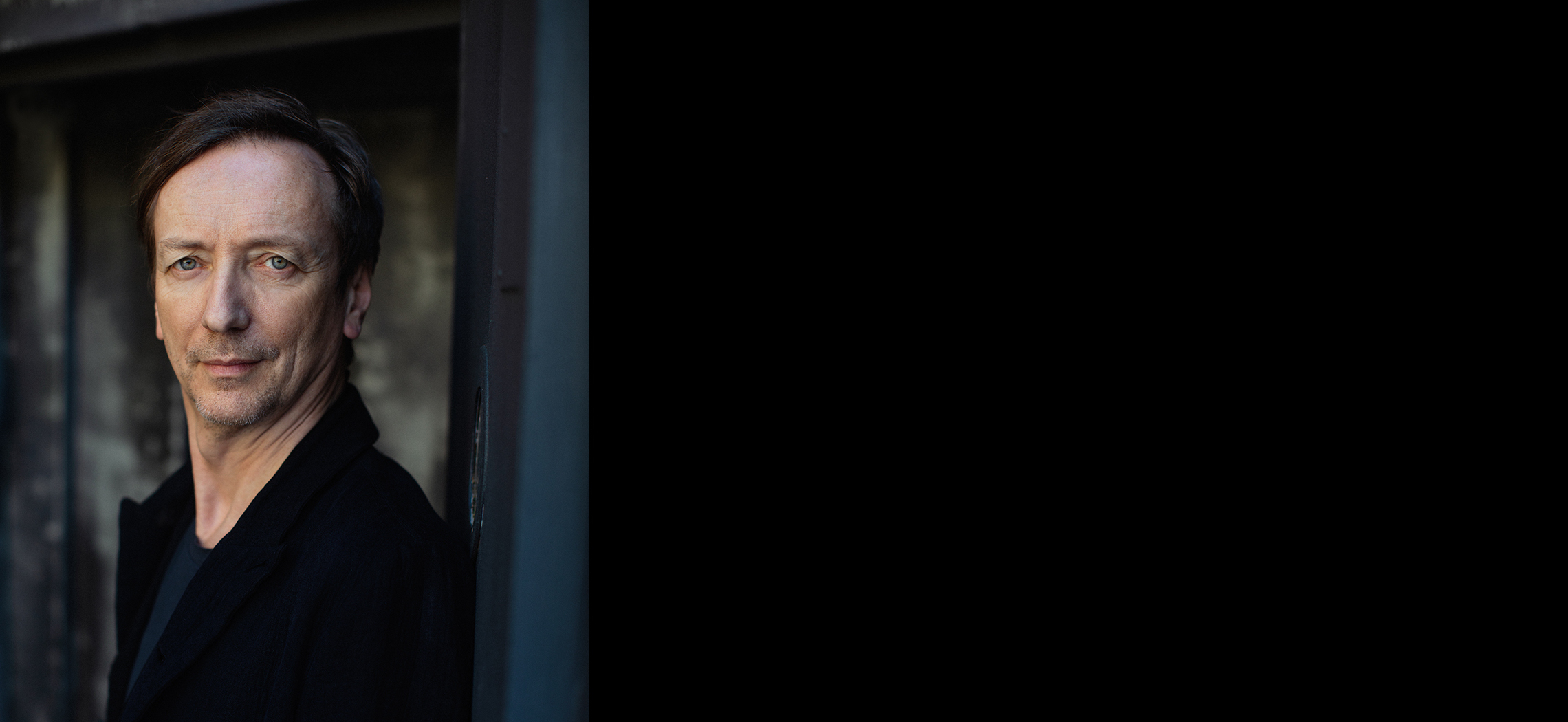A Portrait of composer Volker Bertelmann
Volker Bertelmann © Hannes CasparAt the age of eleven, Volker Bertelmann ruined his parents’ piano. He had practised on the instrument for two years, but then “the sounds were no longer good enough”. Because he didn’t have “money for a synthesiser”, he nailed drawing pins to the piano hammers to get a different sound.
This laid the foundation for a global career that would see him win the Oscar for Best Film Score in 2023. After forming his first rock band at the age of 14, he tried his luck with various groups until gradually gaining more international recognition as from 2004 under the pseudonym ‘Hauschka’ – after the Bohemian composer Vinzenz Hauschka. Here, he was returning to the principles he had discovered in his childhood by alienating piano sounds using mechanical means. For example, he clamped strips of leather between the strings, weighted them down with objects, or taped over some keys so he could no longer use them: “I build barriers to change my habits. Every resistance, every surprise leads me to new approaches.”
However, a career as a film composer was not planned, although he did produce the soundtrack for Doris Dörrie’s German production BLISS (GLÜCK) in 2012, for example. The situation changed abruptly in 2015, however. He was sent on a worldwide tour by his British record company FatCat, some of whose artists such as Johan Johansson (SICARIO) also wrote film scores. After a concert in Melbourne, director Garth Davis approached him and asked if he would like to score his film FINDING HOME – GARTH DAVIS & THE DIRECTION OF LION. This led to a collaboration with fellow composer Dustin O’Halloran, who had already created the score for MARIE ANTOINETTE by Sophia Coppola. “That was a bit like an apprenticeship for me,” says Bertelmann. It was training that came along with spectacular successes – such as winning the Australian Film Award and an Oscar nomination. There were also revealing insights into “how other countries treat their film musicians”.
The success of FINDING HOME – GARTH DAVIS & THE DIRECTION OF LION led to a commission for the score to the series PATRICK MELROSE, which brought him together with director Edward Berger in 2017: “That collaboration worked fantastically straight away. There are directors from whom you get nothing but opposition. But Edward Berger’s attitude is that we need to overcome certain obstacles, but we can do that. We just need to dig deeper.” Bertelmann also appreciates the importance Berger attaches to the music: “While it is often blended into the background, there are many places in his work where it is truly audible.” Their shared aesthetic approach was another decisive factor for the composer.
“We want to find a sound that has delicacy, and sometimes strength. But it’s not about long melodic arcs or pompous scores.” Bertelmann identifies with the philosophy of composer John Cage, who is considered the inventor of prepared pianos: “For him, everything that makes noise is actually music. I feel the same way. I can sit at a crossroads and hear syncopation in the cars’ tyres.”
Agreement on their artistic approach led to Edward Berger’s ALL QUIET ON THE WESTERN FRONT, which won Bertelmann the Oscar for Best Film Score in 2023. This was followed by the joint project CONCLAVE, for the “religious sound aesthetic” of which Bertelmann used, among other things, the Cristal Baschet, an instrument made of glass and metal. He is currently working on Berger’s THE BALLAD OF A SMALL PLAYER.
Because Bertelmann himself is a man of many sounds, he composes for a huge spectrum of productions. These range from Hollywood action films such as THE CROW to German TV movies like SÖRENSEN FÄNGT FEUER. Personal chemistry is often the deciding factor in his project decisions: “I made SÖRENSEN because I liked the lead actor Bjarne Mädel so much.” He certainly doesn’t rule out traditional orchestral soundtracks. “I am currently composing for an animated film, and it’s great fun to write classical lines of melody for that.” Despite his international career, he is finding the rain of awards and nominations rather surreal. When he received the 2023 Oscar, he felt “like [he was] in a tunnel”. But the biggest surprise came from something else: “I never used to believe that I could write a great film score as an independent musician. But with the right skill-set, it is possible.”
Rüdiger Sturm

